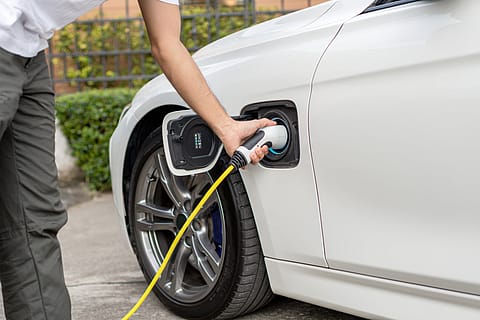Maharashtra unveils ambitious EV policy 2025 to make state India's electric mobility hub
Maharashtra’s new EV Policy 2025 aims to electrify 30% of all vehicles sold in the state by 2030, with generous subsidies, charging infrastructure mandates, and manufacturing incentives.

The Government of Maharashtra has formally notified its Electric Vehicle Policy 2025, charting an aggressive roadmap to become India’s foremost electric mobility hub over the next five years. Replacing the 2021 policy, the new framework—effective until March 2030—seeks to rapidly expand EV adoption, build a robust state-wide charging infrastructure, and establish Maharashtra as a competitive destination for EV manufacturing and battery innovation.
The policy’s vision is to catalyse a clean transportation revolution by driving the adoption of electric vehicles across all segments, fostering industrial investment in EV production, and building sustainable transport infrastructure. It sets an ambitious environmental target: reducing particulate matter (PM 2.5) emissions from vehicles by 325 tonnes and cutting greenhouse gas emissions by a million tonnes by 2030.
To achieve this, the state has outlined clear electrification targets across vehicle categories. It aims for 30% of all new vehicles sold in the state to be electric by 2030. Specifically, 40% of all new two-wheelers and passenger three-wheelers will be electric, while electric goods carriers in the three-wheeler category are expected to constitute 30% of new sales. Similarly, 30% of all four-wheeled passenger cars, 25% of light goods carriers, and 20% of heavier goods carriers are projected to transition to EVs within the policy timeframe. The state also aims to ensure that 40% of buses operated by state transport units in urban agglomerations—such as Mumbai, Pune, Nagpur, Nashik, Chhatrapati Sambhajinagar, and Amravati—are electric. All new vehicles added to the city-level government fleet will be mandated to be electric as well.
To support uptake, the policy offers a tiered incentive structure based on vehicle type and usage. Two-wheeler buyers are eligible for a subsidy of up to ₹10,000, while three-wheeler buyers can receive up to ₹30,000. For electric four-wheelers, non-transport users will be eligible for incentives up to ₹1.5 lakh, and transport users can avail up to ₹2 lakh. Light goods carriers are eligible for a subsidy of ₹1 lakh, and heavier goods carriers may qualify for incentives up to ₹20 lakh. The same subsidy cap of ₹20 lakh also applies to both public and private electric buses. Agriculture tractors and combined harvesters that transition to electric are eligible for incentives up to ₹1.5 lakh.
All electric vehicles registered and sold during the policy period will enjoy a full waiver on road tax and registration renewal fees. In a bid to further ease long-distance EV adoption, the government has granted 100% toll tax exemption to passenger electric vehicles on select corridors such as the Mumbai–Pune Expressway, the Samruddhi Mahamarg, and the newly opened Atal Setu. A steering committee chaired by the Chief Secretary will determine toll waivers for other roads in phases.
The policy also aims to eliminate range anxiety by mandating the presence of charging infrastructure at every 25-kilometre interval along major highways. It requires all new and existing fuel stations along highways to install at least one fast-charging station, subject to technical feasibility. All MSRTC bus stations across the state must also install at least one such charging point. Capital subsidies of up to ₹5 lakh will be provided for standard fast chargers, and up to ₹10 lakh for high-capacity charging stations serving electric buses and trucks. To streamline the process, an online single-window clearance system will be introduced, integrating approvals from municipal authorities, distribution companies, and other agencies.
Maharashtra has also extended industrial policy benefits to the EV manufacturing ecosystem. All EV manufacturers—including those producing batteries and critical components—will be treated on par with mega projects under the state’s D+ category of incentives. These benefits apply irrespective of location and will be administered by the Industries Department. The policy further promotes the creation of battery recycling hubs in locations such as Mumbai, Pune, Nagpur, and Chhatrapati Sambhajinagar. Urban local bodies have been tasked with identifying land parcels for battery collection and recycling within their jurisdictions.
A key pillar of the policy is its focus on research and innovation. The government will set up at least three Centres of Excellence focused on advanced EV technologies, including battery alternatives like sodium-ion chemistry, power electronics, recycling systems, and vehicle-to-grid integration. A ₹15 crore fund—dubbed the CM EV R&D Grant—has been allocated to finance these initiatives. Notably, the policy supports the development of permanent magnet-free electric motors and promotes green hydrogen generation from biomass, positioning the state to lead on next-generation decarbonisation solutions.
Skill development is another cornerstone. The Maharashtra State Board of Technical Education will roll out EV-focused curriculum modules across diploma and training institutes. These will span EV system design, battery management, power electronics, and charging infrastructure management. Reskilling programs for workers transitioning from ICE to EV servicing will also be developed, with a certification framework in place.
A high-level Steering Committee, led by the Chief Secretary and comprising representatives from transport, energy, urban development, and industry departments, will oversee implementation and recommend mid-course corrections as needed. The committee will also evaluate future technologies like hydrogen fuel-cell vehicles for policy support.
With this policy, Maharashtra is making a decisive bet on electric mobility not just as a climate solution, but as a lever for industrial growth and technological leadership. The state’s integrated approach—spanning incentives, infrastructure, manufacturing, R&D, and skilling—signals its intent to electrify at scale, and potentially, redefine India’s transportation future.
(INR CR)